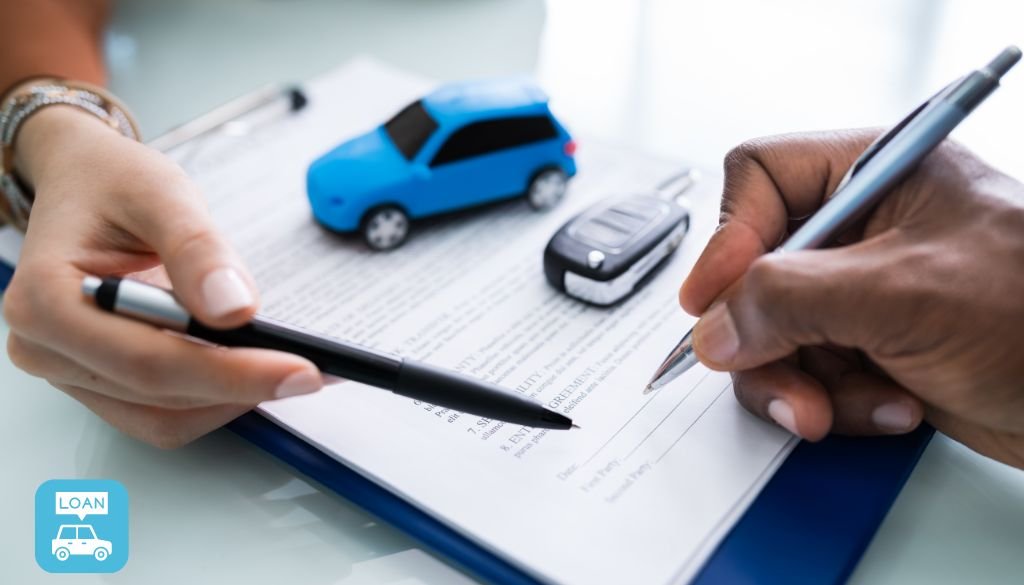In today’s fast-paced world, financial emergencies can arise unexpectedly. If you’re a car owner and find yourself in need of quick cash, a logbook loan might be a viable option for you. This guide walks you through the ins and outs of logbook loans, helping you make an informed decision.
Financial emergencies can crop up unexpectedly in today’s fast world. If you own a car and need quick cash, this could be your answer. A logbook loan is a type of borrowing that involves using your vehicle as security. It enables you to get money from lenders who will allow you to continue driving the car at the same time. Despite that, the lender may repossess it when you default on paying back.
What is a Logbook Loan?
A logbook loan is one where the borrower uses his or her car as collateral. This means that while one gets hold of finances soon enough, he or she can still drive about in their cars. However, once someone fails to pay the agreed amount within an agreed period of time, then the lender has every right to take your vehicle away from you.
Historical Background of Logbook Loans
Logbook loans have been around for quite some time in Britain where they have become part of the financial scene over many years. Initially these loans were informal agreements made between parties but with the passage of bill Of Sale Acts during 19th century they became more regulated. These acts established a legal structure whereby lenders could advance loans against personal items such as motor vehicles. The reason why they are called logbook loans is because they are secured on vehicle registration documents which were referred to as logbooks until 2014 when the electronic versions came out officially thus making them obsolete.
The industry has since developed and lenders have increasingly formalized and advertised them.The business expanded over time and now logbook lending is popular among people who need cash urgently but may not be eligible for conventional credit products.However,because those interest rates are extremely high and it carries risks,it remains very contentious.It’s thus growing popularity notwithstanding;log book loans also remain highly controversial because of their excessive costs and dangers associated with them.
The Impact of Credit on Logbook Loans
Understanding how your credit score affects this kind of loan is very important before considering one. Logbook loans are more available to persons with bad credit or no credit as opposed to traditional loans where lenders scrutinize your credit history. This is because the risk of the lender has been reduced by providing security against your vehicle.
Thus, you can still obtain a logbook loan despite having a poor record of repaying debts or even if you score poorly on financial institutions’ assessment tools. However, it must be noted that while credit history may play a smaller role in the approval process, it can still affect the interest rates and terms you are given. The borrowers with higher scores have chances for better terms while those with lower numbers will pay more interest and get strict conditions imposed. Hence understanding about status of an individual’s credit rating at any particular time becomes pertinent when deciding about taking out such finances.
Frequently Misunderstood Aspects of the Logbook Loans
A number of misconceptions regarding logbook loans do exist and these can lead to unnecessary confusions and fears. One such misconception is that when you take out a logbook loan, you will lose your car immediately. On the other hand, so long as one respects the repayment schedule, they are able to still use their car even after applying for a log book loan.
The other falsehood about this kind of a loan is that only those with no alternative sources can get it. It’s true that log book loans serve as an option for individuals who have a poor credit score; in addition to this, they also provide an ideal remedy for anyone seeking instant money regardless of their financial position.
In addition, it is believed by some people that interest rates charged on logbook loans are too high compared to other forms of lending. While it is true that rates might be higher because of the natureof secured loans, there may be significant differences depending on a lender and your credit profile. Sometimes doing research and comparing could result in better rates.
Finally, many people believe that if the payment is missed once the car will be taken away immediately without any notification or right to appeal. In fact, most lenders will keep in touch with you trying to find alternatives like repayment plans or extensions before taking action against you. But always make sure to read through them carefully so you can understand what is required from you and you know your rights fully well.
When understood correctly these misconceptions enable someone deal with logbook loans more comprehensively so as to evaluate if they are indeed suitable for their financial needs.
Step-by-Step Guide to Getting a Logbook Loan
1. Understand What a Logbook Loan Is
Before you proceed, it’s crucial to understand the concept of a logbook loan. This type of loan involves using your vehicle as collateral. If you default on the loan, the lender can take possession of your car.
2. Assess Your Eligibility
To qualify for a logbook loan, you need to meet specific criteria:
- Vehicle Ownership: You must own the vehicle outright, with no existing finance on it.
- Vehicle Value: Your car should have sufficient value to cover the loan amount.
- Income Criteria: You must meet the minimum income requirements set by the lender.
3. Choose a Reputable Lender
Choosing the right lender is crucial. Here’s how to ensure you pick a trustworthy one:
- Research: Look for lenders authorized and regulated by the Financial Conduct Authority (FCA).
- Reviews: Check customer reviews and testimonials.
- Transparency: Ensure the lender provides clear and transparent information about the loan terms.
4. Apply for the Loan
Once you’ve chosen a lender, follow these steps to apply:
- Documentation: Gather the required documents, including your vehicle’s logbook (V5C), proof of ID, and proof of income.
- Application Process: Fill out the application form provided by the lender, either online or in-person.
5. Vehicle Inspection
The lender will conduct a physical inspection of your vehicle to assess its condition and value. This step is essential to determine the loan amount you qualify for.
6. Review Loan Terms
Carefully review the loan terms before signing any agreement. Pay attention to:
- Interest Rate: Understand the annual percentage rate (APR).
- Repayment Period: Know the duration over which you’ll repay the loan.
- Default Consequences: Be aware of what happens if you fail to make payments.
7. Receive Approval and Disbursement
After your application is approved:
- Sign the Agreement: You’ll need to sign the loan agreement.
- Funds Disbursed: The lender will transfer the funds to your account, usually within 24 hours.
8. Repayment
Repayment is crucial to avoid losing your vehicle:
- Payment Frequency: Understand how often you’ll need to make payments (weekly, bi-weekly, or monthly).
- Payment Methods: Know the available methods for making payments (direct debit, online transfer, etc.).
- Risks of Defaulting: Missing payments can lead to significant penalties or repossession of your car.
9. Retrieval of Logbook
After repaying the loan in full:
- Get Your Logbook Back: The lender will return your vehicle’s logbook, along with a confirmation that the loan has been settled.
10. Cautionary Notes
While logbook loans can be helpful, they come with risks:
- Affordability: Ensure you can afford the loan repayments to avoid financial strain.
- Loan Terms: Fully understand the terms to avoid unexpected fees or repossession.
- Reputable Lender: Choose a trustworthy lender to avoid predatory practices.
Common Pitfalls to Avoid
- Assess Affordability: Failing to assess affordability can lead to default and financial strain.
- Read the Fine Print: Not thoroughly reading the loan agreement can result in unexpected fees.
- Choose Wisely: Avoid untrustworthy lenders to prevent unfair terms and practices.
- Know Your Vehicle’s Value: Underestimating your car’s value can affect the loan amount and your ability to repay.
- Make Timely Payments: Delaying or missing payments can lead to penalties or repossession.
Legal Requirements and Regulations
When considering a logbook loan, be aware of the following legal requirements:
- FCA Authorization: Ensure the lender is authorized and regulated by the Financial Conduct Authority (FCA).
- Consumer Credit Act 1974: Understand your right to cancel the agreement within 14 days.
- Transparent Information: Lenders must provide clear information about the loan terms, including the APR.
- Repossession Process: Know the legal process for repossession, including the lender’s obligation to provide a default notice.
Alternative Financing Options
If a logbook loan isn’t right for you, consider these alternatives:
- Personal Loans: Unsecured loans based on your creditworthiness.
- Secured Loans: Loans secured against an asset other than your vehicle.
Real-Life Case Studies
John’s Experience
John, a car owner, used a logbook loan during a financial emergency. By planning and budgeting for repayments, he successfully cleared his loan without any issues.
Sarah’s Testimonial
Sarah chose a reputable logbook loan provider after thorough research. She appreciated the transparent terms and supportive customer service.
A Cautionary Tale
One borrower opted for a logbook loan without fully understanding the terms, leading to repossession. This underscores the importance of reading and understanding the loan agreement.
Conclusion
Logbook loans can be a lifesaver for financially strapped individuals and car owners. However, they come with risks and responsibilities. By following this guide, you can make an informed decision and choose the best financial solution for your needs.
This guide aims to provide you with all the necessary information to make an informed decision regarding logbook loans. Remember, understanding the terms, choosing a reputable lender, and managing your repayments are key to a successful loan experience.
FAQs on Logbook Loans
What is a Logbook Loan?
Logbook loan refers to the secured type of loan whereby your vehicle acts as collateral. This means that in the entire period of the loan, the lender retains and holds your car’s V5C. This gives them possession rights if you fail to pay back.
Can I Borrow Much Money Using a Logbook Loan?
The amount of money one can borrow typically depends on the worthiness of his/her automobile and ability to repay back the advance. Usually, lenders offer up to 50% of the car’s value.
What Are Interest Rates for Log Book Loans?
Interest rates for log book loans may differ greatly although they tend to be higher than for other types of loans due to their greater risk for lenders. Always check APR (Annual Percentage Rate), and any additional costs associated with this credit before deciding.
How Long Do I Have To Repay The Loan?
Please note that repayment terms depend on the lender’s conditions and agreement made between you two since they varies from a few months up to several years. It is very important that you select an appropriate time frame over which you will make repayments based on your financial situation.
What Happens If I Don’t Repay The Loan?
If you refuse or neglect payment commitments, then your vehicle can be taken away by a lender who gave this kind of credit facility. They should give you a default notice where you have at least sometime so as to solve out the deficit.
Is My Vehicle Eligible For A Log Book Loan?
Normally, your car must be owned outright (not being financed), in good shape, relatively new, etc., all among other things for it to qualify as security for this type of credit arrangement by various lenders. Also some creditors have specific requirements regarding vehicle make and model.
Can I Still Drive My Car When I Have A Log Book Loan ?
Yes! You can keep driving your car but your logbook will be kept by the lender until you have fully paid off the loan.
Is There A Credit Check Involved?
Most log book loan companies don’t carry out traditional credit checks and therefore people with bad credit history can access this kind of credit facility. However, they usually want to know whether or not you have a way of paying back this credit.
Are There Any Fees?
Besides interest rate, there could also be other additional charges such as administration fees, late payment charges or early repayment penalties. Always read if any so as to comprehend what are the total fees tied to borrowing money.
Can I Pay Off My Loan Early?
Although some lenders may charge an early settlement fee, most allow for it. Review your contract for details.
What Should I Think About Before Applying For A Logbook Loan?
Thus assess your financial status, the terms of the advance and check on how reliable is that particular lender before applying for it. The risk of losing your car by taking up more than you can afford should be avoided at all cost.
How Do I Apply For A Log Book Loan?
To apply – select a reputable lender; gather required documents (logbook V5C form, identification proof, income proof); fill in an online or offline application form which includes submitting your vehicle for physical examination by lending firm before being granted their consent.
Further Reading and Resources
For more information on logbook loans, consider the following resources:
- Financial Conduct Authority (FCA): www.fca.org.uk – Offers regulatory information and guidance on secure lending practices.
- Citizens Advice: www.citizensadvice.org.uk – Provides independent advice on loans and financial management.
- Money Advice Service: www.moneyadviceservice.org.uk – A free and impartial service that offers financial advice and information on various types of loans.
- StepChange Debt Charity: www.stepchange.org – Offers support and advice for dealing with debt, including guidance on loan management.
These sources can help you make an informed decision and offer support if you need assistance with your financial situation.






